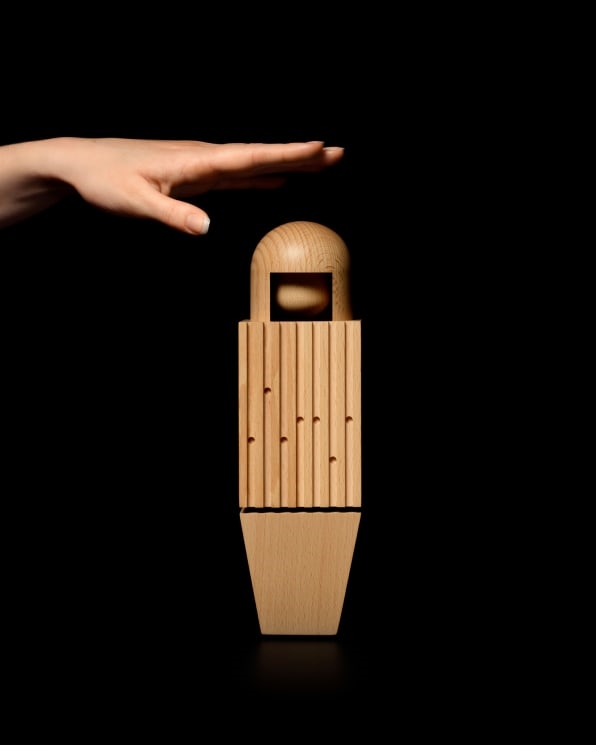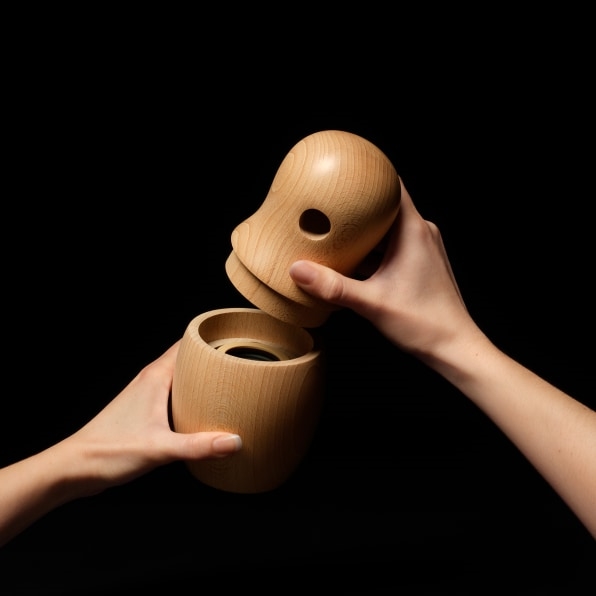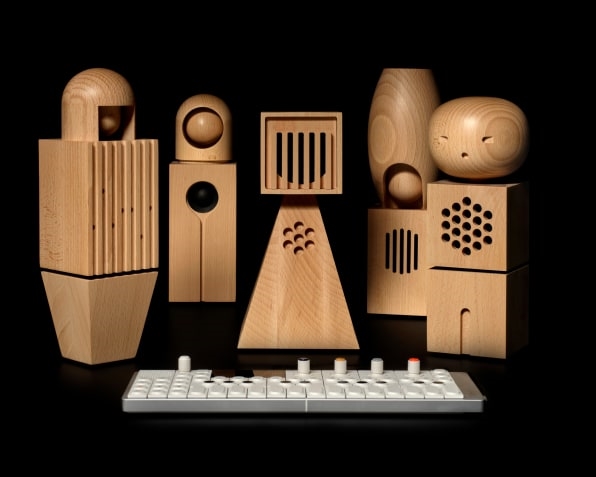These little wooden dolls might actually have souls
Teenage Engineering’s new Choir is the most whimsical and beautiful product I have seen in years. The eight wooden dolls can sing in harmony, like an actual choir. It might sound creepy on paper, but they feel like little magical beings that could be living in a Hayao Miyazaki film or Adventure Time.
These dolls are actually speakers, even though I hate calling them that. They are designed to work together to sing preprogrammed songs on their own, or using a MIDI (Musical Instrument Digital Interface) connection, to sing original compositions like your very own digital barber octet.
Each doll has its own processing and communication units, which is what allows them to work in harmony to sign everything, from Beethoven’s “An Die Freude”—the fourth movement of his 9th Symphony, above—to the traditional American folk song “I’ve been working on the railroad.” And while they can’t sing like an actual choir directed by Leonard Bernstein, what they lack in vocal realism they have in computerized retro charm. The dolls are also equipped with motion and tactical sensors, so you can activate them by tapping on their heads, or change the volume by tilting from side to side.

Though they are technically impressive, it’s hard to describe Choir as a list of features because, well, because I kind of like these dudes. No, really. Look at them. The Choir dolls embody an anthropomorphic quality that makes them feel like living beings with their own personalities—the kind of objects that remain still when you’re looking and come alive when you look away.
Perhaps you know what I’m talking about. There’s the car that looks like someone fun you want to go have drinks with, or the one that tells dad jokes to other cars (I’m looking at you, Volkswagen Beetle). Dieter Rams’ TP-1 radio phono player definitely has a personality, especially when viewed standing up. Or R2-D2, which may be a trash can with a dome head, but still feels more alive and has more personality than most humans I know.

Yes, Choir is like that, too. It’s the kind of product in which form and function perfectly fuse to birth something that feels alive. This was intentional. Teenage Engineering, says so itself. On its website, the company describes Choir as a collection individuals that come together to produce something more beautiful. “When more than one member of the choir are placed together, in any combination, they communicate with each other, and recognize the choral members in range, joining in a full choral experience,” the company writes. It’s like a family! And like a living, breathing human families, each of Choir’s members has its own look and own vocal tonality.

Teenage Engineering says the dolls were inspired by wooden characters from around the world including Russian matryoshka and characters like Pinocchio by Carlo Collodi. Teenage Engineering even gave them names. Carlo, from Italy, is a baritone. Gisela, the German, is a mezzo soprano. Bogdan is a Cossack with a low bass voice. Hatsheptsut comes from Egypt, another mezzo soprano, although she covers from a3 to f5 while Gisela has a b3 to g5 range. Ivana is from the Netherlands, and she’s an alto. Miki, from Japan (my personal favorite) is a tenor, and Olga, from Russia, is a contralto. Not only do they have different tonality ranges, but their wooden shapes give them a different auditory texture.
I really, really would love to have them all, if they didn’t cost $250 a pop. That’s probably their only drawback—that will set you back $2,000 for the entire band, plus $2,000 for the optional OP-1 synth keyboard, which you may want to turn Choir into your own instrument. Of course, you can buy just one or two and expand your collection from time to time. In an ocean of generic Bluetooth speakers infested with disposable Spotify streams, the Choir dolls’ whimsical nature and personality seem completely worth it.
(42)


